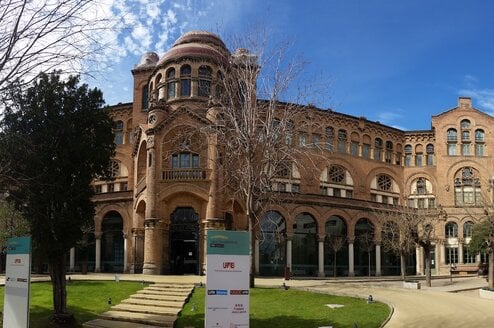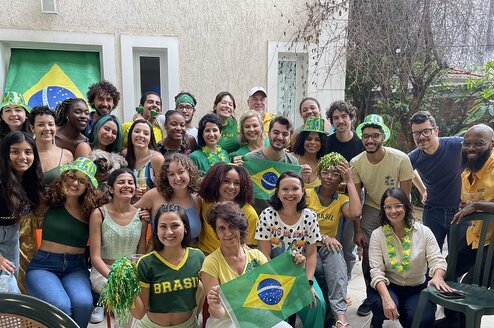Year-Long Study Abroad Programs
Year-Long Study Abroad Programs
Pagination
About
The thought of studying abroad for a whole year can be daunting for some while exhilarating for others. In my first semester of college, I quickly realized that I was a member of that second group. No doubt, it was a long time to think about studying in a foreign country. Immediately my mind started racing with all the things I could do in a year (so much time for activities!). Meanwhile, another part of my mind was writing a laundry list of all the things I’d miss out on. Before you decide one way or another, there are some critical areas you have to check out.
Photo Credit: Dave Meier.
Need to Know
Before you sign off on a year's worth of adventures overseas, consider all the angles. We suggest focusing on these:
The price in dollars
If you break down the price per month with regards to a semester abroad and an academic year abroad, the latter is, on average, $200-600 cheaper. For example, in Shanghai, a semester costs $2,600 a month while an academic year costs only $2,000 a month.
Unfortunately, this isn’t the only price you have to consider. Keep in mind that, in some countries, to study abroad for over 180 days, more documents are required. This could include FBI background checks and apostilles from the Hague Convention (essentially verifying the validity of these documents). These price range from $20-60 plus the visa itself which can cost $100-200.
Not only that, but if you must travel to the consulates and embassies yourself, you’ll need to take off of work, pay for transportation, and any food or housing you must use there. All of these little things add up quick and are before your jet-lagged self even arrives on foreign soil.
To help yourself out, don’t forget to research scholarships before you go. Money is money, people. Every little bit helps. Even a $100 one can help cover some of these pre-departure expenses.
Planning Your Trip
Trust me, this shouldn’t be nearly as daunting as taking all those college tours senior year of high school. With a plethora of study abroad programs out there, there’s going to be a perfect one that fits your needs. Here are some things to look for:
What are you getting out of the price?
Is extra academic help offered? Are there local, national, and international excursions planned? Look at what is and what is not included.
Housing
How easy is it to switch from a homestay with your program to your own apartment? What about vice versa? Will you get a reimbursement of the difference if you switch?
School offerings
Is there enough variety of classes so that you can have most of your credits transfer back to your home university? Depending on your major, graduating in 4 years is still be possible (I even did it with a double major and double certificate!). However, you must know what will count towards graduation.
Pre-departure help
This could be easily overlooked and it’s of utmost importance. Going through the visa process can be tough. Having people based in the US to help you is priceless. Some will even send a representative to get your visa in your place. Speaking from experience, that’s SUPER helpful if you live far away from a consulate.
Arrival help
Will the on-site directors meet you at the airport? Is an orientation offered with a hotel included?
How independent or dependent do you want to be on your program?
Is every excursion mandatory? Is there support available if you are sick, having trouble with your apartment, or even with your bank? New things with new problems in new places is enough to make your head spin like an energetic ballerina. Local directors can be invaluable in times like these.
Check out your university’s study abroad fair and chat up the people at all the tables. They are loaded with info and are always happy to share it. Among many, some popular programs for academic year study abroad are ISA, IES, API, and CIEE.














